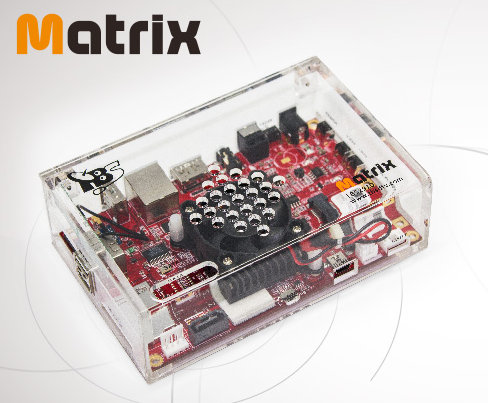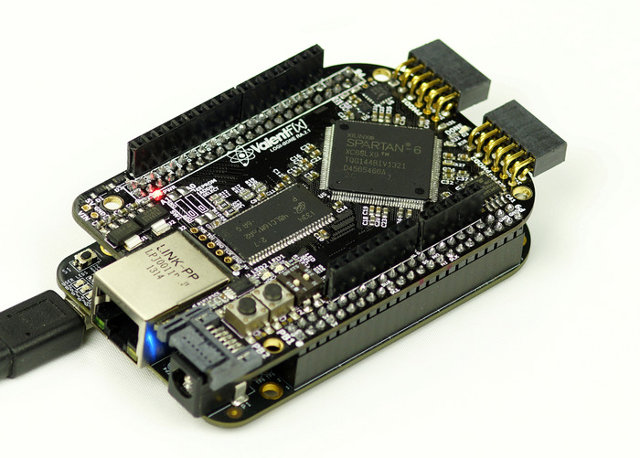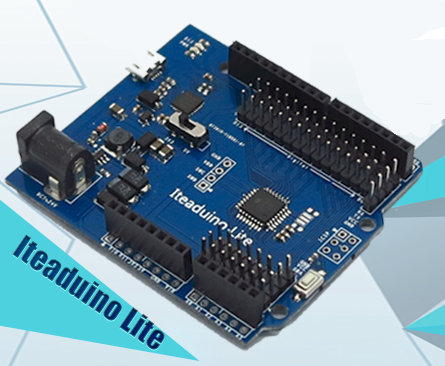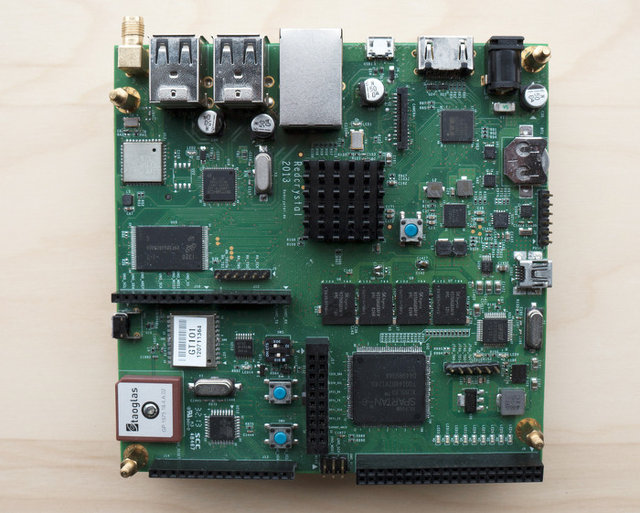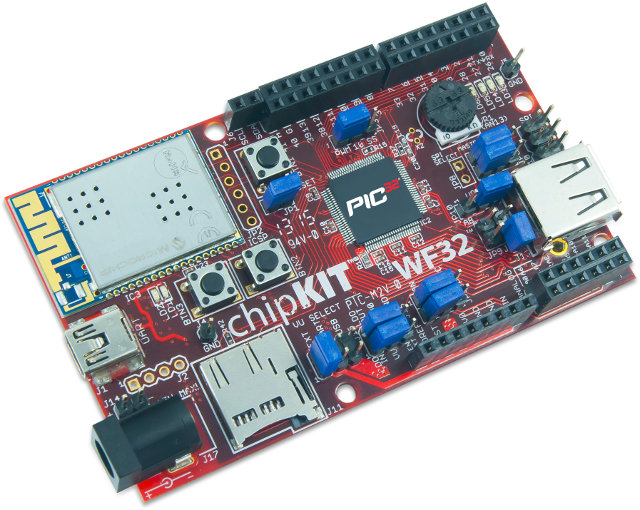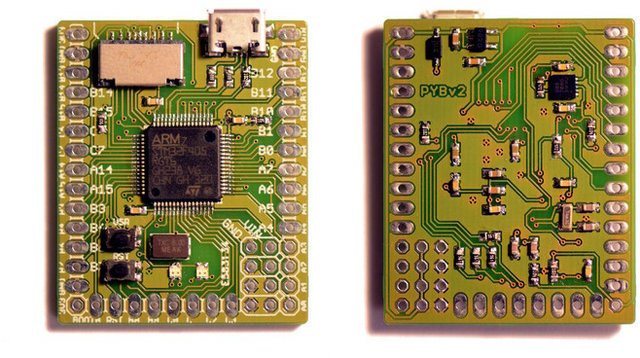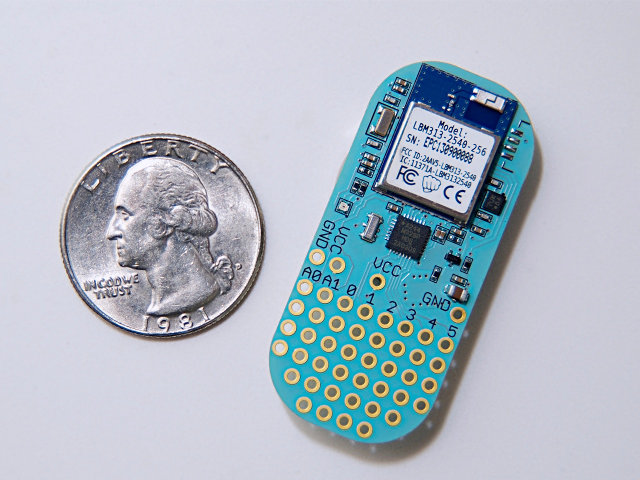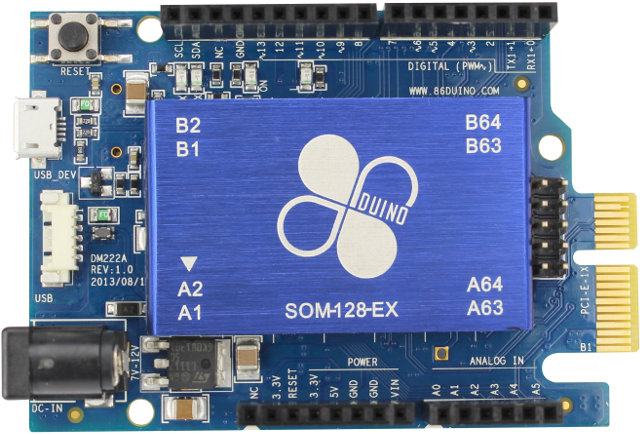TBS, a producer of digital TV tuners for PC, has decided to launch their own ARM mini PC called Matrix to interface with their USB DVB tuners. The board is based on Freescale i.MX6 Quad ARM Cortex A9 SoC with 2GB RAM, 16GB eMMC flash, and costs about $150. The company also claims to have XBMC, VDR, Tvheadend software running on the platform. Here are the specifications for this quad core ARM board / computer (Codename: TBS2910): SoC – Freescale i.MX6 Quad (MCIMX6Q5EYM10AC) quad core ARM Cortex A9 processor @ 1.0 GHz with Vivante GC2000 3D GPU System Memory – 2GB DDR Storage – 16GB eMMC, SD card slot, micro SD card slot, and SATA interface USB – 3x USB 2.0 host ports, 1x USB OTG Video Output – HDMI Audio Output – HDMI and 3.5mm audio jack Connectivity – 10/100/1000M Ethernet, and Wi-Fi 802.11n/b/g Expansion – 16-pin header for […]
$89 LOGi Development Boards Add FPGA and Arduino Headers to the Raspberry Pi and Beaglebone Black (Crowdfunding)
LOGi-Pi and LOGi-Bone are expansion boards featuring Xilinx Spartan 6 for respectively the Raspberry Pi, and the Beaglebone Black. Valent F(x), the company who designed the boards, is currently looking for funds via Kickstarter in order to bring the cost down to $89, or even $69 for early backers. LOGi boards specifications: FPGA – Xilinx Spartan 6 LX9 TQFP-144 FPGA 9,152 Logic Cells, 16 DSP48A1 Slices, 576KB Ram, and 96 User Available I/O Pins System Memory – 256 Mb SDRAM connected to the FPGA Storage – 1x High Bandwidth SATA connector expansion port Video Output – 10x Length-tuned LVDS Pairs Connectors: 2x Digilent Inc. PMOD ports supporting 59+ plug-and-play hardware modules Arduino compatible headers connected to the FPGA pins (3.3v only) supporting over 200 Arduino Shields. Bit-Stream loading interface connected to the host processor, optional bitstream FPGA self-loading from onboard Flash. Misc – 2x LEDs 2x Push Buttons 2x DIP Switches 3.3v I/O Regulator and […]
Iteaduino Lite is an $8 Arduino (Mostly) Compatible Board (Crowdfunding)
A few months ago, Borderless Electronics sold a $12 Arduino Leonardo clone ($9 + $3 shipping), and a Chinese company called Itead Studio, which also makes Iteauino Plus board (AllWinner A10), has just launched an Indiegogo campaign for an $8 Arduino “nearly-fully-compatible” board, and yes, that includes shipping. The board is similar to Arduino UNO, but with a different MCU in order to reduce costs: MCU – Logic Green LGT8F88A @ 16MHz with 8KB flash (0.7KB used by bootloader), 1KB SRAM, and 504 byte EEPROM. Operating Voltage – 5V / 3.3V Input Voltage – Recommended: 7-20V, Limits: 7-24V Digital I/O – 14 pins of which 6 provide PWM output. Analog Input – 6 pins DC Current per I/O – Pin80 mA DC Current for 3.3V – power supply 250 mA USB – microUSB for power, programming and debugging Arduino Uno is based on Atmel ATmega328, but this baord uses LFT8F88A, […]
Crystal Board Combines Rockchip RK3188 ARM SoC with Xilinx FPGA and Arduino Compatible Board (Crowdfunding)
Red Crystal, a German startup, has just introduced the Crystal Board, a 3-in-1 development board with Rockchip RK3188 SoC running Linux or Android, an Arduino UNO compatible board, and a Xilinx Spartan-6 FPGA. The concept is a similar to the UDOO board, but adds an FPGA. The company has launched a Kickstarter campaign to gather funds to manufacture the Lite and Pro versions of the board for respectively $149 and $179. Crystal Board specifications (Lite and Pro versions): SoC – Rockchip RK3188 ARM Cortex-A9 quad core up to 1.8Ghz + Mali-400 MP4 GPU MCU – Atmel Atmega328 SMD FPGA – Xilinx Spartan6 XC6SLX9 with 9152 logic cells System Memory – 2GB DDR3 @ 1066MHz (1GB DDR3 @ 1066MHz for Lite version) Storage – micro SD card slot, SPI flash Video Output – HDMI 1.4 Connectivity: 10/100M Ethernet port Wi-Fi 802.11b/g/n with antenna. Dual band for Pro version, 2.4GHz band for […]
Microchip Unveils chipKIT Wi-Fi Development Board and Motor Control Shield
Microchip Technology has just announced two new boards by Diligent, part of its Arduino compatible chipKIT ecosystem: chipKIT WF32 board featuring a PIC32 MCU and a Wi-Fi module, and chipKIT Motor Control Shield for servos, steppers, and DC motors. chipKIT WF32 Development Board Board specifications: MCU – Microchip PIC32MX695F512L micro-controller (80 Mhz 32-bit MIPS, 512K Flash, 128K SRAM) External Storage – Micro SD card connector Wi-Fi – IEEE 802.11 b/g via Microchip MRF24WG0MA WiFi module USB – USB 2.0 OTG controller with A and micro-AB connectors for debugging and programing. 43 available I/O pins with 12 analog inputs Misc – 4x user LEDs PC connection uses a USB A > mini B cable (not included) Power – 7V to 15V input voltage (recommended), 3.3V operating voltage, 30V input voltage (maximum), 0V to 3.3V analog input voltage range Microchip has also released an embedded cloud software framework to create Internet of Things […]
Micro Python Brings Python to MCU Boards and Robots (Crowdfunding)
Micro Python is an implementation of the Python programming language, written from scratch and optimized to run on micro-controllers such as the ones based on ARM Cortex-M cores. Damien George, the developer, also designed the Micro Python board powered by STMicro STM32F405 Cortex M4 MCU for the purpose of running Micro Python. Even though in this project, the star of the show is not the board itself, as Micro Python will run on other platform once it’s open source, let’s have a look at the hardware specifications: MCU – STMicro STM32F405RG @ 168MHz with 1MB flash, 192KB RAM, and an FPU. External storage – Micro SD slot 30 general purpose I/O pins – 5 USARTs, 2SPIs, 2 I2C busses, 14 ADC pins, 2 DAC pins, 2CANs, and 4 servo ports with power. Built-in USB interface Misc – 4 LEDs, a user switch, a reset switch, a real-time clock, and a 3-axis […]
LightBlue Cortado is an Arduino Compatible Board Programmed Wirelessly via Bluetooth LE (Crowdfunding)
We’ve already seen several Bluetooth Low Energy (BLE) Arduino compatible boards being crowd-funded such as RFDuino and BLEDuino, but there’s now another board designed by Punch Through Design: LightbBlue Cortado. The board is programmed wirelessly directly via Bluetooth LE, instead of USB as in the two aforementioned boards, which means programming via iPad or Android tablets becomes more convenient. Here are the technical specifications of the board: MCU – Atmel ATmega328P @ 8MHz with 32KB Flash, 1KB EEPROM, 2KB SRAM Bluetooth – LBM313 Module with Texas Instruments CC2540, 256 KB Flash. Bluetooth range: 30.5m. Power consumption in sleep mode: 0.9μA I/O – 4 PWM pins, 2 Analog inputs, 8 GPIO, I2C and SPI Sensor – 3-Axis Accelerometer Misc – RGB LED, protoboard section, adhesive backing Power – Coin cell battery. Battery life exceeding one year for low power applications There’s no USB, so the only way to program the board is via […]
$39 86Duino ZERO is an x86 Arduino Compatible Board that Supports DOS, Windows, and Linux
Intel Gallileo Development Board with a Intel Quark processor, and Arduino software and hardware, now gets some competition with DM&P Electronics’ 86Duino ZERO board powered by the company’s Vortex86EX processor and 128MB RAM, that is said to support DOS, Windows, and Linux. 86Duino ZERO Specifications: Processor – DM&P Vortex86EX 32-bit x86 processor @ 300MHz System Memory – 128MB DDR3 Storage – 8MB SPI flash, and microSD card slot Connectivity – 10/100M Ethernet (at the back of the board, not RJ45) USB – USB host connector, micro USB port for development Arduino Leonardo compatible headers Misc – Reset button, PCIE bus Power Supply – DC-IN 7 to 12V, or via microUSB port. The board is comprised of a daughter board (DM-222) and a System-on-Module (SoM) either called DM-205 and or Vortex86EX SOM-128-EX which the following specs (some of which are not accessible in 86Duino Zero): Processor – Vortex86EX @ 300MHz System […]


